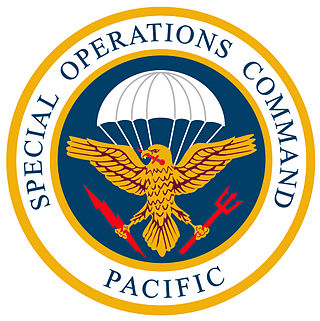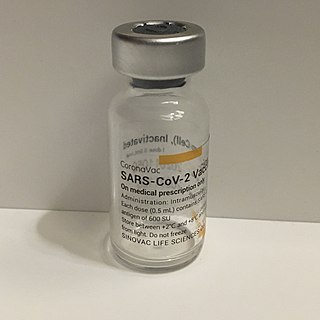The United States National Security Council was established following the coordination of the foreign policy system in the United States in 1947 under the National Security Act of 1947. An administrative agency guiding national security issues was found to be needed since world war II. The national Security Act of 1947 provides the council with powers of setting up and adjusting foreign policies and reconcile diplomatic and military establishments. It established a Secretary of Defence, a National Military Establishment which serves as central intelligence agency and a National Security Resources Board. The specific structure of the United States National Security Council can be different depending on the elected party of the time. Different party emphasize on different aspects of policy making and administrating.
Disinformation is false information deliberately spread to deceive people. Disinformation is an orchestrated adversarial activity in which actors employ strategic deceptions and media manipulation tactics to advance political, military, or commercial goals. Disinformation is implemented through attacks that "weaponize multiple rhetorical strategies and forms of knowing—including not only falsehoods but also truths, half-truths, and value judgements—to exploit and amplify culture wars and other identity-driven controversies."

Esperanza Alcantara Icasas-Cabral is a Filipina cardiologist and clinical pharmacologist. She served as Secretary of the Department of Health in the Philippines, taking office in January 2010 to replace Dr. Francisco Duque III after his appointment as chairperson of the Civil Service Commission. Before her appointment as Secretary of Health she was previously the Secretary of the Department of Social Welfare and Development, replacing Corazon Soliman. Dr. Cabral is married to Bienvenido Villegas Cabral, an ophthalmologist.

Kyrgyzstan – United States relations are bilateral relations between Kyrgyzstan and the United States.

Sinovac Biotech Ltd. is a Chinese biopharmaceutical company based in Haidian District, Beijing that focuses on the research, development, manufacture, and commercialization of vaccines that protect against human infectious diseases. The company was listed on the Nasdaq but the exchange halted Sinovac's trading in February 2019 due to a proxy fight. The company has faced bribery probes in China. Its COVID-19 vaccine was also the target of a covert disinformation campaign by the US government.

The Special Operations Command Pacific, known as SOCPAC, is a sub-unified command of the United States Department of Defense for special operations forces in the United States Indo-Pacific Command (USINDOPACOM) area of responsibility.

Jonathan Patrick Braga is a United States Army lieutenant general, serving as the commanding general of United States Army Special Operations Command since August 13, 2021. He previously served as a deputy commanding general of United States Army Pacific from August 2020 to July 2021, as commander of Special Operations Command Pacific from July 2018 to August 2020, and before that as operations director of Operation Inherent Resolve, the official name for the US war on ISIS.

False information, including intentional disinformation and conspiracy theories, about the scale of the COVID-19 pandemic and the origin, prevention, diagnosis, and treatment of the disease has been spread through social media, text messaging, and mass media. False information has been propagated by celebrities, politicians, and other prominent public figures. Many countries have passed laws against "fake news", and thousands of people have been arrested for spreading COVID-19 misinformation. The spread of COVID-19 misinformation by governments has also been significant.

The COVID-19 pandemic in the Philippines was a part of the worldwide pandemic of coronavirus disease 2019 caused by severe acute respiratory syndrome coronavirus 2. As of October 13, 2024, there have been 4,173,631 reported cases, and 66,864 reported deaths, the fifth highest in Southeast Asia, behind Vietnam, Indonesia, Malaysia, and Thailand. The first case in the Philippines was identified on January 30, 2020, and involved a 38-year-old Chinese woman who was confined at San Lazaro Hospital in Metro Manila. On February 1, 2020, a posthumous test result from a 44-year-old Chinese man turned out positive for the virus, making the Philippines the first country outside China to record a confirmed death from the disease.

Both the national government and local governments have responded to the COVID-19 pandemic in the Philippines with various declarations of emergency, closure of schools and public meeting places, lockdowns, and other restrictions intended to slow the spread of the virus.
Fake news in the Philippines refers to the general and widespread misinformation or disinformation in the country by various actors. It has been problematic in the Philippines where social media and alike plays a key role in influencing topics and information ranging from politics, health, belief, religion, current events, aid, lifestyle, elections and others. Recently, it has evolved to be a rampant issue against the COVID-19 pandemic in the Philippines and the 2022 Philippine general election.

Vaccine diplomacy, a form of medical diplomacy, is the use of vaccines to improve a country's diplomatic relationship and influence of other countries. Meanwhile, vaccine diplomacy also "means a set of diplomatic measures taken to ensure access to the best practices in the development of potential vaccines, to enhance bilateral and/or multilateral cooperation between countries in conducting joint R&D, and, in the case of the announcement of production, to ensure the signing of a contract for the purchase of the vaccine at the shortest term." Although primary discussed in the context of the supply of COVID-19 vaccines, it also played a part in the distribution of the smallpox vaccine.

CoronaVac, also known as the Sinovac COVID-19 vaccine, was a whole inactivated virus COVID-19 vaccine developed by the Chinese company Sinovac Biotech. It was phase III clinically trialled in Brazil, Chile, Indonesia, the Philippines, and Turkey and relies on traditional technology similar to other inactivated-virus COVID-19 vaccines, such as the Sinopharm BIBP vaccine, another Chinese vaccine, and Covaxin, an Indian vaccine. CoronaVac does not need to be frozen, and both the final product and the raw material for formulating CoronaVac can be transported refrigerated at 2–8 °C (36–46 °F), the temperatures at which flu vaccines are kept.

Misinformation related to the COVID-19 pandemic has been propagated by various public figures, including officials of the United States government. The Trump administration in particular made a large number of misleading statements about the pandemic. A Cornell University study found that former U.S. President Donald Trump was "likely the largest driver" of the COVID-19 misinformation infodemic in English-language media, downplaying the virus and promoting unapproved drugs. Others have also been accused of spreading misinformation, including U.S. Secretary of State Mike Pompeo, backing conspiracy theories regarding the origin of the virus, U.S. senators and New York City mayor Bill de Blasio, who downplayed the virus.
The COVID-19 vaccination program in the Philippines was a mass immunization campaign against severe acute respiratory syndrome coronavirus 2 (SARS-CoV-2), the virus that causes coronavirus disease 2019 (COVID-19), in response to the pandemic in the country. The vaccination program was initiated by the Duterte administration on March 1, 2021, a day after the arrival of the country's first vaccine doses which were donated by the Chinese government.
The Chinese government has actively engaged in disinformation to downplay the emergence of COVID-19 in China and manipulate information about its spread around the world. The government also detained whistleblowers and journalists claiming they were spreading rumors when they were publicly raising concerns about people being hospitalized for a "mysterious illness" resembling SARS.
Misinformation related to the COVID-19 pandemic in the Philippines consists of disinformation about the COVID-19 pandemic propagated by various sources.

In many countries, the dissemination of varied claims and perspectives regarding COVID-19 vaccines has sparked widespread public discussion. These include concerns about potential side effects, differing interpretations of how the immune system responds to vaccination, and debates over the development and distribution of COVID-19 vaccines. Additionally, stories such as COVID-19 being linked to 5G technology and other debated information have also emerged. This spread of information, including content from anti-vaccination advocates, may have influenced people's attitudes towards vaccination. In response, governments and private organizations around the world have introduced measures to encourage or mandate vaccination, such as lotteries, mandates, and free entry to events. These measures have further fueled debates about their legality and effectiveness.
This timeline includes entries on the spread of COVID-19 misinformation and conspiracy theories related to the COVID-19 pandemic in Canada. This includes investigations into the origin of COVID-19, and the prevention and treatment of COVID-19 which is caused by the virus SARS-CoV-2. Social media apps and platforms, including Facebook, TikTok, Telegram, and YouTube, have contributed to the spread of misinformation. The Canadian Anti-Hate Network (CAHN) reported that conspiracy theories related to COVID-19 began on "day one". CAHN reported on March 16, 2020, that far-right groups in Canada were taking advantage of the climate of anxiety and fear surrounding COVID, to recycle variations of conspiracies from the 1990s, that people had shared over shortwave radio. COVID-19 disinformation is intentional and seeks to create uncertainty and confusion. But most of the misinformation is shared online unintentionally by enthusiastic participants who are politically active.











